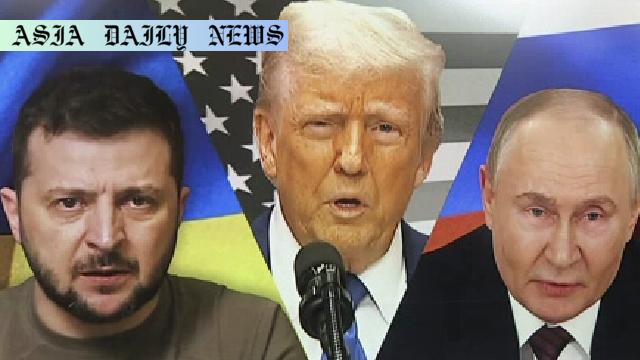Ceasefire: Ukraine, Russia, US, and Turkey convene in Istanbul for direct negotiations on halting the ongoing conflict.
Ceasefire discussions held in Istanbul involve Ukraine, Russia, the US, and Turkey.
Negotiation focuses include a 30-day truce and geopolitical neutrality demands.
Progress is anticipated to be slow given the differing positions of both sides.

Introduction to the Ceasefire Talks in Istanbul
On Friday, the global spotlight turned to Istanbul, where a critical round of ceasefire talks was initiated between Ukraine and Russia, moderated by delegations from the United States and Turkey. These discussions aim to bring an end to a conflict that has endured since the Russian invasion of Ukraine began in February 2022. This meeting marks the first high-level direct talks between Moscow and Kyiv since March 2022, signaling a potential thaw in diplomatic stagnation.
The Context: Motivations of the Delegations
The Ukrainian delegation, led by Defense Minister Rustem Umerov, has reiterated the necessity of a 30-day ceasefire as an essential precursor to broader discussions on territorial sovereignty and reparations. By contrast, the Russian delegation, headed by Vladimir Medinsky, demands that discussions address the “root causes” of the conflict, including NATO’s expansion. Moscow continues to insist on Kyiv’s neutrality as part of any resolution.
The participation of the US and Turkey adds another layer of complexity as they act both as intermediaries and stakeholders. US Secretary of State Marco Rubio emphasized that while major breakthroughs are unlikely, the presence of international mediators underscores the urgency of the crisis.
Key Points Addressed in the Discussions
One of the central topics of the negotiation revolves around Ukraine’s NATO aspirations, a move that Moscow has deemed a threat to its national security. Kyiv, however, has consistently argued that its NATO ambitions are essential for safeguarding its sovereignty. Likewise, discussions around a temporary 30-day ceasefire aim to provide immediate relief and create a conducive environment for successive rounds of peace-building dialogue. Both parties remain skeptical of each other’s intentions but acknowledge the necessity of such discussions to avoid an unending war.
The Challenges and Obstacles
Despite these efforts, the stakes remain high, and the challenges immense. Russia’s unwillingness to concede territory or acknowledge Ukraine’s sovereignty continues to stall progress. Similarly, Ukraine insists on retaining its territorial integrity and has rejected compromises that involve relinquishing contested regions. The lack of trust between the two nations proves to be a significant hurdle.
The Role of External Mediators
The involvement of Turkey and the United States as mediators adds credibility to the negotiations. Their participation highlights the importance of international diplomacy in conflict resolution. Turkey, strategically located between Europe and Asia, is positioned as a neutral arbiter, while the United States provides political leverage to push for negotiations. However, both nations are limited in their influence, as the ultimate decisions lie with the Russian and Ukrainian leadership.
In conclusion, the talks in Istanbul represent a glimmer of hope in an otherwise bleak geopolitical landscape. Both sides acknowledge the complexity of the conflict but appear willing to engage in meaningful dialogue toward resolution.



Commentary
The Significance of the Istanbul Talks
The Istanbul talks represent a pivotal moment in the ongoing Ukraine-Russia conflict. A meeting of this scale, with participation from global powers such as the United States and Turkey, underscores the urgent necessity for peace. For over a year, Russia’s invasion of Ukraine has triggered a humanitarian crisis, displacing millions and reshaping the global political order. These discussions, therefore, are more than just an opportunity—they are a necessity.
Challenges Facing the Negotiations
While the mere presence of both Ukrainian and Russian delegations at the negotiating table is encouraging, the gulf between their demands remains a significant challenge. Russia’s insistence on addressing NATO expansion and Ukraine’s neutrality clashes with Kyiv’s call for territorial sovereignty and international support. This stalemate underscores the deep-rooted political and ideological divides that prolong the conflict.
The Role of Mediators in Facilitating Peace
The involvement of Turkey and the United States as mediators adds much-needed pressure and balance to the discussions. Turkey’s neutral stance and the United States’ diplomatic clout create an environment conducive to dialogue. However, it’s important to note that external mediators can only do so much; the success of these talks ultimately depends on the willingness of Russia and Ukraine to compromise for peace.
In conclusion, while the challenges are immense, the Istanbul talks provide a crucial platform for dialogue. The road to peace is long and fraught with obstacles, but this moment represents a small yet significant step forward in addressing one of the most pressing conflicts of our time.